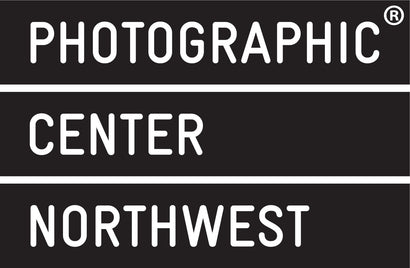Your Cart is Empty
Sold out
*WAIT-LIST* - Introduction to Alternative Process Photography - Fall 2025
$0.00 - $925.00
- COURSE IS FULL - To be added to the wait-list, click register and proceed through check-out. You will be asked to provide contact/billing information but will not be required to enter any payment information.
| FACULTY | Kelli Perletti |
| DAY / TIME | Wednesday 6-9pm | September 24 - December 3, 2025* |
| *No class on November 26, 25 - Thanksgiving Break | |
| TUITION | $870 + $55 Materials Fee |
|
Payment & Refund Policy Scholarship Opportunities |
|
| FORMAT | In-person, enrollment is limited to 10 students. |
| LEVEL | Intermediate |
| PREREQS | Photography I (Black & White or Digital) |
| CREDITS | 3 – Fulfills Elective requirement for Certificate Program |
This course is designed as an accessible and exploratory introduction to alternative photographic processes. Over the quarter, students will engage with a diverse range of historical and experimental techniques including cyanotypes, anthotypes, phytograms, chemigrams and lumen prints. Each process will be introduced through hands-on demonstrations, practical exercises, discussions, and lectures exploring both historical and contemporary artists who integrate these approaches into their work. The primary goal of this course is to expand students’ creative practice and photographic vocabulary through direct experimentation with these processes. By the end of the quarter, students will develop an appreciation for the expressive possibilities of alternative photography, gaining both an introduction to technical skills and an understanding of alternative photographic processes place within the broader history and contemporary landscape of photographic art.
COURSE OBJECTIVES
- Learn how to mix cyanotype chemistry correctly and safely, how to apply cyanotype chemistry to various surfaces including but not limited to watercolor paper and fabric. Learn appropriate exposure and washing techniques for the cyanotype process
- Learn how to make plant-based emulsions to create anthotype prints and how to appropriately expose images, how to store prints in a light safe environment, and options for preserving anthotypes
- Learn how to make lumen prints, how to process prints, how to store prints in a light safe environment, and options for preserving lumen prints
- Learn how to create chemigrams using Vaseline, tape, honey, and cooking oils as well as how to process the prints using plant-based developers
- Learn how to create phytograms using 35mm film or B&W darkroom paper
- Brief introduction to the history of alternative photography including discussions on contemporary practitioners and how they use experimental approaches to photography within their practice.
COURSE OUTCOMES
- Foundation of technical knowledge to successfully use the cyanotype, anthotype, phytogram, lumen printing, and chemigram techniques
- Understanding of core historical and contemporary art practitioners who utilize alternative photographic processes
- Experience participating in critique and exploring artistic vision
- Ability to apply basic alternative photographic techniques, knowledge and vocabulary within a personal practice
COURSE MATERIALS
The Materials Fee for the course covers the majority of supplies that students will use both in class and to complete assignments, including the various chemicals, digital negative media, watercolor paper, and black and white papers used for the different printing processes. Students may incur some additional materials costs should they wish to go above and beyond or explore a particular process in more depth outside of the course requirements. See the Important Notes for Students section below for details about facilities access and rental fees.
IMPORTANT NOTES FOR STUDENTS
- Weekly attendance is vital to student success in PCNW courses. We require that students attend the first meeting in order to retain their spot in the class. A waiver may be granted if permission is given by, and subsequent arrangements made with, both the PCNW Registrar and Faculty. Please see our Education Policies for details about attendance policies and academic expectations.
- PCNW adheres to a strict payment, cancellation and refund policy. Please review our Payment & Refund Policies prior to registration.
- Additional materials and supplies, not covered by a materials fee for a course, are the responsibility of the student. Detailed information about course expectations, required texts and materials will be provided at the start of the quarter.
- Students should prepare to spend several hours per week completing assignments outside of class, which may require use of the PCNW facilities; view our Rental Rates for details about additional fees. Rental fees for use of PCNW Facilities are a separate cost from tuition.
Images © Elizabeth Ransom (Lumen Print, Cyanotype, Anthotype, and Chemigram)








